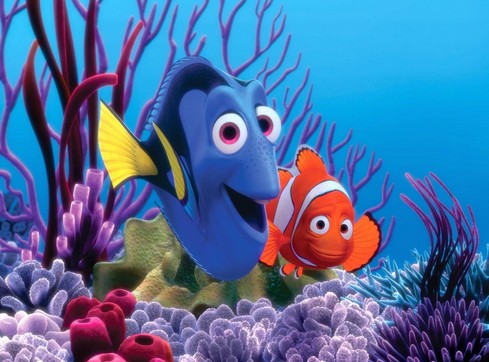
Learn English with Movies and Film: The Popcorn-ready Guide from “Finding Nemo” to “Terminator”
When you learn English with movies, you’re taking a wild adventure.
You’re learning new words from pirates.
You’re practicing pronunciation with animated fish.
You’re falling in love with the language while characters fall in love on screen.
Sounds like a more fun way to learn English, right?
So today, I want to share my favorite films to learn English with movies.
I’ll also give you some tips to help you learn new words and phrases while you watch, from repeating phrases to watching with (and without) subtitles.
But you can rest assured that you’ll enjoy watching the movies at the same time.
Okay, let’s press play!
Why Learning English with Movies and Film Works
Perhaps you’re still wondering if you can really learn English with movies.
After all, watching movies is supposed to be fun, right? So, how can you learn while having so much fun with the film? And more importantly, why should you learn English with movies instead of with textbooks?
Here are three reasons I believe it works, and why I recommend learning the language this way.
- You’ll get to learn real English… not textbook English. The English you learn through textbooks or in ESL class is not what you’ll hear people say on the street. For example, in beginner English classes, you might have learned how to say “nice weather we’re having” or “it’s raining cats and dogs.” While these phrases are technically correct, we almost never say these in real life.
In contrast, the English spoken in movies is very natural. It’s also very close to what you’ll hear if you speak with native English speakers too. This will help improve your spoken English.
- You learn English words in context. This is one of my favorite aspects of watching movies. Let’s say that you like watching crime films (these are great!). After watching 10 or 20 movies, you’ll start to learn vocabulary related to the context, or subject, of crime.
Usually, when we learn words traditionally (e.g. in school), we study things like vocabulary lists. The problem with learning new words with vocabulary lists is that you can learn what words mean, but not where and how they are used.
For example, let’s say you learn the new word “detective.” From the dictionary, you’ll know what that it means “a person who investigates crimes”. But unless you use it, it can be easy to forget. It also doesn’t give you an idea where the word is used most frequently, and how it is used.
On the other hand, if you learn the word “detective” through watching crime films, you’ll know “detective” can mean many things. For example, it can be a title in front of a person (e.g. “Detective Beckett”). Or maybe it’s the noun referring to the job (e.g. he’s a detective). And maybe you’ll even hear things that will let you form opinions about the word (e.g. “you lousy detectives”).
This way, you won’t only learn what each word means, you will also know how it’s used.
- You hear how things are said.
Well, it’s all about how you say it. You know, things like your body language, your expressions (like a smile, a frown) and your tone of voice (like when you sound angry, or when you sound sad). As you can guess, the how is often more important than the what to English people.
Let me give you an example.
I’m sure that one of the first phrases you wanted to learn in English was “I love you.” But did you imagine that depending how you say it out loud, it can be very different?
“I love you” — You might hear this after two people (especially lovers) fight! One person may be trying to say to the other person “I really love you… why don’t you believe me!?”
“I love you” — A person might really want to say “I love you (and not anyone else…don’t worry!)”
“I… LOVE… YOU” — This might be a person saying “I love you” in a very loud voice… while trying to really confess their love!
“I LOVE YOU!!” — The person might be saying “I love you”… while they’re really angry!
If you hear these phrases out loud, they will make perfect sense to you!
Through observing actors in films, not only will you be able to learn new words, you will be able to understand how they are said. The characters might be sad, happy, surprised or angry. And you’ll understand this immediately.
Practice Tips to Really Learn English with Movies
- Choose an interesting movie. This probably sounds obvious, but if you choose a boring movie, you’ll be bored. And if you’re bored, it will be difficult to pay attention for more than one and a half hours!
I remember when I was a child, I had to watch hours and hours of really old movies like “Singing in the Rain,” “Mary Poppins” to learn English. If you don’t know these films—you’re welcome to check them out—they’re really old! I didn’t exactly hate them, but I didn’t feel excited at all when watching these films.
And because of that, I highly recommend you choose movies you like. To do this, you can go to a website called Rotten Tomatoes, which is a website with many great critics and reviews on many tens of thousands of movies. It’s the perfect way to learn English through movies you love and know will be great.
No comments:
Post a Comment